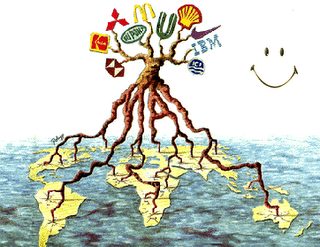When Channel Five launched almost 10 years ago, broadcasting life progressed at a much more sedate pace, with just a handful of networks competing for a huge national TV audience. Today, there are hundreds of channels and Five seems something of an anachronism: the only terrestrial broadcaster not to have joined the digital space race.

Which is perhaps why its belated entry into the multichannel arena, with Five Life and Five US, required a provocative marketing campaign. But the campaign, which began with the tagline "Nothing good has ever come out of America", will need to hit home in a big way if it is to cut through an increasingly crowded digital landscape. Some believe Five is just too late to the digital party to compete with the massed ranks of other channels jostling for eyeballs and advertising.
Despite growth on the main channel stalling in the past two years, Five was powerless to make the changes that were needed. But, freed from the shackles of shared owners with competing agendas when parent company RTL bought out UBM's 35% stake, chief executive Jane Lighting and director of programmes Dan Chambers have moved quickly to reclaim the Freeview spectrum they leased to the pay service Top Up TV and come up with two new channels.
Nick Thorogood, who has wide-ranging multichannel experience from his days at UKTV but was most recently head of ITV Daytime, is the man charged with making the vision reality. "It's later but it's not too late," he insists. "Freeview is a young platform and rapidly growing. Once it gets past Sky and we get to analogue switch-off, that would be too late."
My Comments...
This article talks about how Channel Five has finally launched two new channels on digital tv and whether this is merely a step taken too late by them or just in time.In my opinion Channel Five is too late in entering this emensely growing market due to the fact that they are not a popular channel in the first instance and have had many problems in just keeping the positon that they do have. I think that even if they do go ahead with this launch it will not make too much of a difference to their ratings and popularity with consumers as they do not have enough to offer.
http://media.guardian.co.uk/broadcast/story/0,,1890618,00.html





